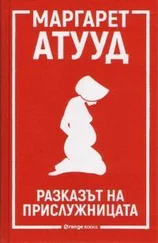We didn’t live over the store. Our house was a long distance away, in one of those residential neighbourhoods where there were some old bungalows and also some newer, bigger houses that had been built where the bungalows had been torn down. Our house was not a bungalow—it had a second floor, where the bedrooms were—but it was not a new house either. It was made of yellow brick, and it was very ordinary. There was nothing about it that would make you look at it twice. Thinking back, I’m guessing that was their idea.
I was in The Clothes Hound quite a lot on Saturdays and Sundays because Melanie didn’t want me to be in our house by myself. Why not? I began to ask when I was twelve. Because what if there was a fire, said Melanie. Anyway, leaving a child in a house alone was against the law. Then I would argue that I was not a child, and she would sigh and say I didn’t really know what was and was not a child, and children were a big responsibility, and I would understand later. Then she’d say I was giving her a headache, and we would get into her car and go to the store.
I was allowed to help in the store—sorting T-shirts by size, sticking the prices on them, setting aside those that needed to be either cleaned or discarded. I liked doing that: I sat at a table in the back corner, surrounded by the faint smell of mothballs, watching the people who came in.
They weren’t all customers. Some of them were street people who wanted to use our staff washroom. Melanie let them do it as long as she knew them, especially in winter. There was one older man who came in quite frequently. He wore tweed overcoats that he got from Melanie and knitted vests. By the time I was thirteen, I was finding him creepy, since we’d done a module on pedophiles at school. His name was George.
“You shouldn’t let George use the washroom,” I said to Melanie. “He’s a perv.”
“Daisy, that’s unkind,” said Melanie. “What makes you think so?” We were at our house, in the kitchen.
“He just is. He’s always hanging around. He’s bothering people for money right outside the store. Plus, he’s stalking you.” I might have said he was stalking me, which would have caused serious alarm, but that wasn’t true. George never paid any attention to me.
Melanie laughed and said, “No he isn’t.” I decided she was naive. I was the age at which parents suddenly transform from people who know everything into people who know nothing.
—
There was another person who was in and out of the store quite a lot, but she wasn’t a street person. I guessed she was forty, or maybe closer to fifty: I couldn’t tell with older people. She usually had on a black leather jacket, black jeans, and heavy boots; she kept her long dark hair pulled back, and she didn’t wear makeup. She looked like a biker, but not a real biker—more like an ad of a biker. She wasn’t a customer—she came in through the back door to pick up clothes for charity. Melanie said the two of them were old friends so when Ada asked, it was difficult to say no. Anyway, Melanie claimed that she only gave Ada items that would be hard to sell, and it was good that people would get some use out of them.
Ada didn’t look to me like the charitable type. She wasn’t soft and smiling, she was angular, and when she walked she strode. She never stayed long, and she never left without a couple of cardboard boxes of castoffs, which she stowed in whatever car she’d parked in the alleyway behind the store. I could see these cars from where I sat. They were never the same.
—
There was a third kind of person who came into The Clothes Hound without buying anything. These were the young women in long silvery dresses and white hats who called themselves Pearl Girls and said they were missionaries doing God’s work for Gilead. They were a lot creepier than George. They worked the downtown, talking to street people and going into shops and making pests of themselves. Some people were rude to them, but Melanie never was because she said it served no purpose.
They always appeared in twos. They had white pearl necklaces and smiled a lot, but not real smiling. They would offer Melanie their printed brochures with pictures of tidy streets, happy children, and sunrises, and titles that were supposed to lure you to Gilead: “Fallen? God Can Still Forgive You!” “Homeless? There Is a Home for You in Gilead.”
There was always at least one brochure about Baby Nicole. “Give Back Baby Nicole!” “Baby Nicole Belongs in Gilead!” We’d been shown a documentary about Baby Nicole at school: her mother was a Handmaid, and she’d smuggled Baby Nicole out of Gilead. Baby Nicole’s father was a top-brass super-nasty Gilead Commander, so there had been a huge uproar, and Gilead had demanded her return, so she could be reunited with her legal parents. Canada had dragged its feet and then caved in and said they would make every effort, but by that time Baby Nicole had disappeared and had never been found.
Now Baby Nicole was the poster child for Gilead. On every Pearl Girls brochure there was the same picture of her. She looked like a baby, nothing special, but she was practically a saint in Gilead, said our teacher. She was an icon for us too: every time there was an anti-Gilead protest in Canada, there would be the picture, and slogans like BABY NICOLE! SYMBOL OF FREEDOM! Or BABY NICOLE! LEADING THE WAY! As if a baby could lead the way on anything, I would think to myself.
I’d basically disliked Baby Nicole since I’d had to do a paper on her. I’d got a C because I’d said she was being used as a football by both sides, and it would be the greatest happiness of the greatest number just to give her back. The teacher had said I was callous and should learn to respect other people’s rights and feelings, and I’d said people in Gilead were people, and shouldn’t their rights and feelings be respected too? She’d lost her temper and said I needed to grow up, which was maybe true: I’d been aggravating on purpose. But I was angry about the C.
Every time the Pearl Girls came, Melanie would accept the brochures and promise to keep a pile of them at point of sale. Sometimes she would even give some of the old brochures back to them: they collected the leftover ones for use in other countries.
“Why do you do that?” I asked her when I was fourteen and taking a greater interest in politics. “Neil says we’re atheists. You’re just encouraging them.” We’d had three modules in school on Gilead: it was a terrible, terrible place, where women couldn’t have jobs or drive cars, and where the Handmaids were forced to get pregnant like cows, except that cows had a better deal. What sort of people could be on the side of Gilead and not be some kind of monsters? Especially female people. “Why don’t you tell them they’re evil?”
“There’s no point arguing with them,” said Melanie. “They’re fanatics.”
“Then I’ll tell them.” I thought I knew what was wrong with people then, especially adult people. I thought I could set them straight. The Pearl Girls were older than me, it isn’t as if they were children: how could they believe all that crap?
“No,” said Melanie quite sharply. “Stay in the back. I don’t want you talking to them.”
“Why not? I can deal—”
“They try to con girls your age into going to Gilead with them. They’ll say the Pearl Girls are helping women and girls. They’ll appeal to your idealism.”
“I would never fall for that!” I said indignantly. “I’m not fucking brain-dead.” I didn’t usually swear around Melanie and Neil, but sometimes those words just slipped out.
“Watch the potty mouth,” said Melanie. “It makes a bad impression.”
Читать дальше
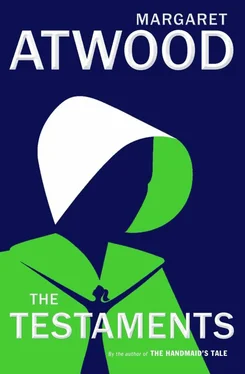
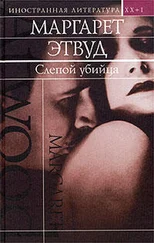

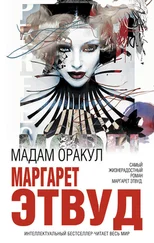
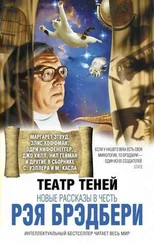
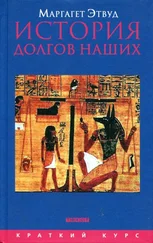
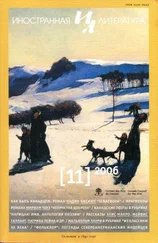
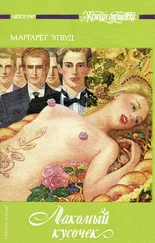
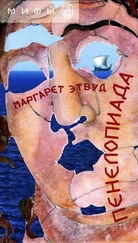
![Маргарет Этвуд - Лакомый кусочек [litres]](/books/384342/margaret-etvud-lakomyj-kusochek-litres-thumb.webp)
![Маргарет Этвуд - Избранные произведения в одном томе [Компиляция]](/books/389748/margaret-etvud-izbrannye-proizvedeniya-v-odnom-tome-thumb.webp)

